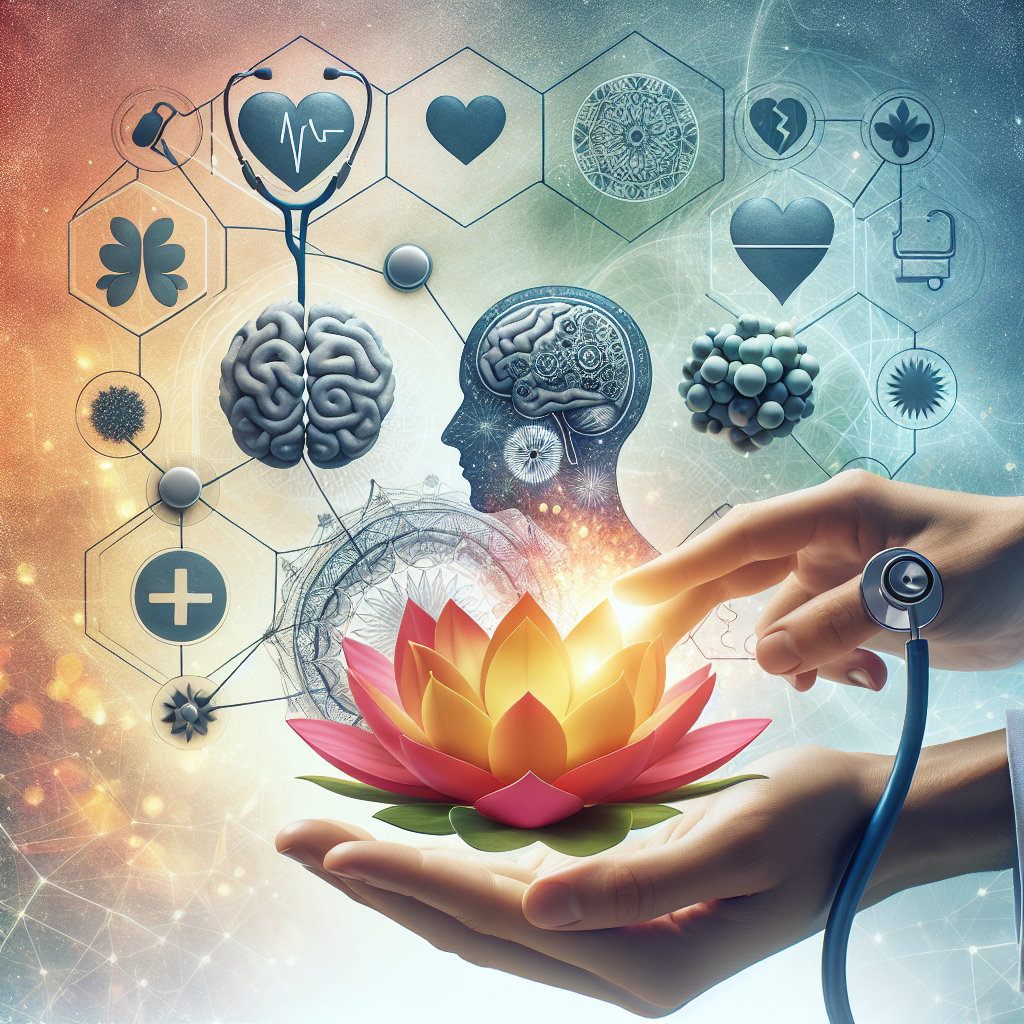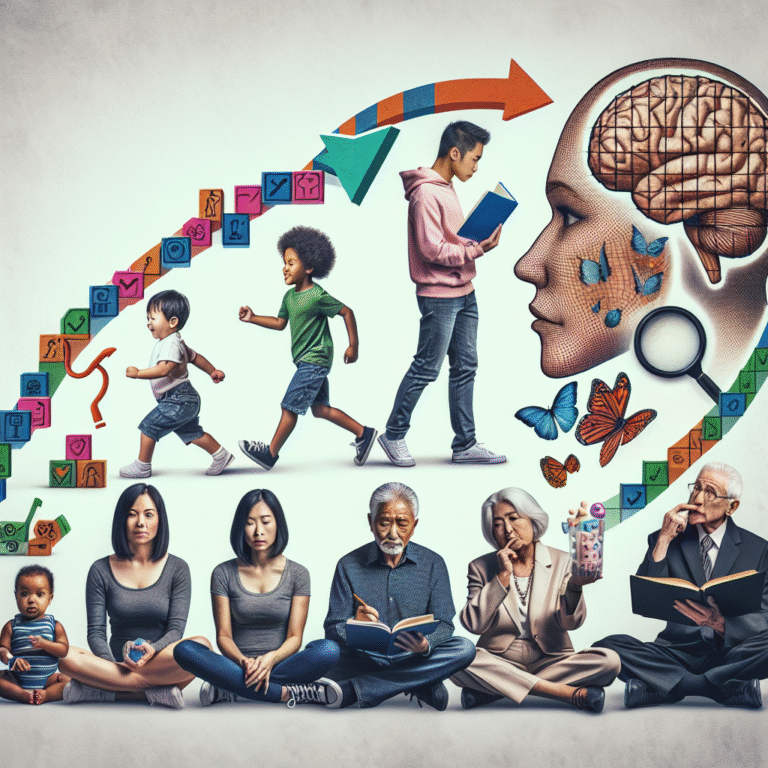
Introduction
In today’s fast-paced world, mental health often gets overshadowed by physical health, leading to an alarming rise in stress-related illnesses and mental health disorders. However, there’s a growing recognition of the importance of a more integrated, holistic approach to wellness. Holistic Approaches: Integrating Wellness and Mental Health Services for Comprehensive Care isn’t just a trend; it’s a profound shift in understanding health. This approach focuses on treating the whole person—mind, body, and spirit—rather than merely addressing symptoms.
As the stigma surrounding mental health continues to diminish, the integration of mental health services with traditional wellness practices emerges as essential groundwork for comprehensive care. This article will delve deeply into holistic approaches, spotlight case studies that showcase their efficacy, and provide readers with actionable insights on achieving better health outcomes.
The Framework of Holistic Approaches
What Are Holistic Approaches?
Holistic approaches encompass a range of practices, therapies, and strategies aimed at treating individuals as complete beings. This methodology views health in a multifaceted way—recognizing that mental, emotional, spiritual, and physical well-being are inextricably intertwined.
Benefits of Integrative Care
Enhanced Patient Satisfaction
A 2018 study revealed that 88% of patients reported higher satisfaction levels when their care integrated mental health services and wellness practices. This satisfaction often results from feeling seen as a whole person rather than just a collection of symptoms.
Improved Health Outcomes
Holistic approaches have shown to result in longer-lasting outcomes by addressing root causes rather than symptoms. For instance, integrating mindfulness practices in psychotherapy has enhanced emotional regulation in patients, reducing the frequency of relapse in mental health conditions.
Core Elements of Holistic Approaches
Mindfulness and Meditation
Research shows that regular mindfulness practice can significantly reduce anxiety and depression. Meditation increases the thickness of the prefrontal cortex, which is responsible for emotional regulation, impulse control, and complex decision-making.
Nutritional Psychology
Foods rich in omega-3 fatty acids, antioxidants, and vitamins can pave the way for better mental health. Nutritional interventions alone have demonstrated a reduction in depressive symptoms among participants in various studies.
Physical Activity
Regular exercise has long been associated with mental well-being. Studies have indicated that even moderate physical activity can reduce symptoms of depression and anxiety, proving that movement plays a vital role in whole-person health.
Spiritual Practices
Many wellness programs incorporate elements of spirituality, whether through traditional religious practices or modern spiritual frameworks like yoga and mindfulness.
Case Studies: Evidence in Action
Case Study 1: Wellness Clinic Integration
Scenario: A community wellness clinic implemented an integrated model that combined therapeutic yoga, nutrition counseling, and psychiatric services.
Findings: After a year, patient outcomes showed a 40% decrease in anxiety-related symptoms and a 25% reduction in the use of prescribed medications. This case illustrates Holistic Approaches: Integrating Wellness and Mental Health Services for Comprehensive Care can lead to significantly improved results for participants.
Case Study 2: School-Based Mental Health Programs
Scenario: A school district partnered with mental health professionals to incorporate social-emotional learning (SEL) and mindfulness practices within the curriculum.
Findings: Subsequently, reports of bullying and anxiety decreased by 30%. Students displayed greater emotional resilience and reported higher levels of connection to their peers and educators.
The Role of Technology in Holistic Approaches
The rise of digital mental health platforms and wellness apps demonstrates how technology can further integrate wellness and mental health services. For example:
Telehealth Services: Many patients can access mental health counseling via telehealth platforms, making services accessible regardless of geographical limitations.
- Wellness Tracking Apps: These applications allow users to monitor their emotional and physical health in one place, promoting a holistic view of well-being.
A Table of Holistic Modalities and Their Benefits
| Holistic Modality | Mental Health Benefit | Physical Health Benefit |
|---|---|---|
| Mindfulness Meditation | Reduced anxiety and improved focus | Lower blood pressure |
| Nutritional Therapy | Fewer depressive symptoms | Better metabolism |
| Physical Exercise | Enhanced mood and emotional stability | Stronger cardiovascular system |
| Spiritual Practices | Increased sense of fulfillment and purpose | Improved immune function |
Building Collaborative Care Models
Care Coordination
The success of holistic approaches hinges on collaborative care models where different health professionals actively communicate and unite their efforts. By fostering collaboration among primary care physicians, mental health professionals, nutritionists, and fitness coaches, patients can achieve their highest potential in well-being.
Creating Multidisciplinary Teams
It’s crucial for healthcare facilities to invest in training and resources to enable teams to work cohesively. In such a setting, practitioners can share their observations and develop cohesive treatment plans that align all aspects of a patient’s health journey.
Practical Steps for Holistic Integration
Assess Current Practices
Evaluate your current healthcare framework to identify gaps where holistic approaches can be incorporated.Develop a Collaborative Network
Engage with professionals from various health disciplines to establish a community of integrated care.Educate Patients
Provide resources to help patients understand the benefits of a holistic approach and how they can actively participate in their wellness journey.Implement Technology
Utilize telehealth and wellness apps to broaden access to services and enhance monitoring of patient outcomes.- Seek Continuous Feedback
Regularly evaluate the effectiveness of the integrated model through patient surveys and health outcome tracking.
Conclusion
As we navigate the complexities of health in the modern age, Holistic Approaches: Integrating Wellness and Mental Health Services for Comprehensive Care emerges as a beacon of innovation and hope. By recognizing the interconnectedness of mental, emotional, and physical health, we can initiate profound changes in individual lives and community well-being.
Incorporating holistic approaches isn’t merely about treatment; it’s about fostering a lifestyle change that enhances the quality of life. As a slight shift in perspective can result in a significant positive transformation, everyone can adopt these principles to inspire resilient, healthier living.
FAQs
1. How can I start integrating holistic practices into my life?
Begin with small changes like adopting a balanced diet, practicing mindfulness, engaging in regular exercise, and seeking therapy focusing on integrative methods.
2. What role does nutrition play in mental health?
Nutrition significantly impacts brain function and mood regulation, making it a vital component of comprehensive mental health strategies.
3. Can holistic approaches really change mental health outcomes?
Research validates that when implemented effectively, holistic practices can lead to enduring improvements in mental health.
4. Are holistic approaches suitable for everyone?
While holistic approaches are beneficial for most, individuals with specific mental health conditions should consult healthcare professionals for tailored advice.
5. How can healthcare facilities implement holistic approaches?
By training staff in integrative techniques, developing multidisciplinary teams, and employing collaborative care models, healthcare facilities can transition toward holistic practices.
By nurturing a comprehensive care environment where mental health and wellness coexist, we take monumental steps toward overall health and happiness. Embrace the opportunities that holistic approaches offer, and witness the transformation in your life and those around you!














